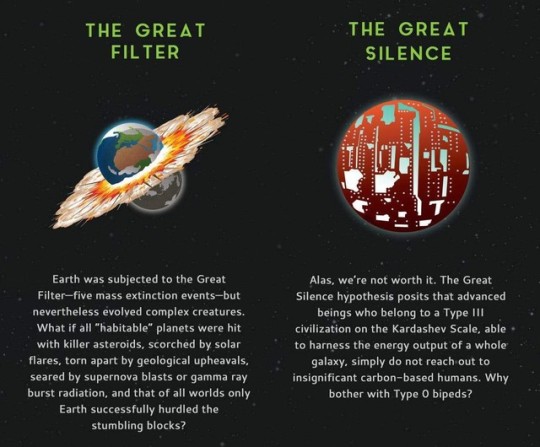Am ever more aware that I neglect this thing and lofty aspirations of an online diary of insights and fandom deliciousness has plummeted into the earth. That’s okay, I can settle for merely reblogging online brilliance.
Don't wanna be here? Send us removal request.
Text

GSNK Volume 16 has been announced for 9th August!! According to Tsubaki-sensei, only a regular edition will be released.
The tagline says, "Love will set on that beach."
Some words from Tsubaki-sensei:
"The cover of Gekkan Shoujo Nozaki-kun Volume 16 releasing on the 9th August will be like this. "This time it's Nozaki and Yuzuki. Volume 16 is coloured chocolate mint! "I wasn't sure how I worked on the new artwork and the serialisation manuscripts at the same time, but I'm glad that I somehow got to the end."
406 notes
·
View notes
Text


i was in awe that shangri-la and ME could go together. Seriously, check out this mashup https://www.youtube.com/watch?v=fziCwpCrUiA&pp=ygUPY2xjIHZpeHggbWFzaHVw
6 notes
·
View notes
Text

I was really into the aesthetic of that comeback and how cohesive the MV was. And just overall hopeful for CLC's trajectory circa 2019... (Still, we'll always have the music
1 note
·
View note
Text


I made this years ago and quite forgot
1 note
·
View note
Text

this lab safety training module is sending me
72K notes
·
View notes
Text
Want to learn something new in 2022??
Absolute beginner adult ballet series (fabulous beginning teacher)
40 piano lessons for beginners (some of the best explanations for piano I’ve ever seen)
Excellent basic crochet video series
Basic knitting (probably the best how to knit video out there)
Pre-Free Figure Skate Levels A-D guides and practice activities (each video builds up with exercises to the actual moves!)
How to draw character faces video (very funny, surprisingly instructive?)
Another drawing character faces video
Literally my favorite art pose hack
Tutorial of how to make a whole ass Stardew Valley esque farming game in Gamemaker Studios 2??
Introduction to flying small aircrafts
French/Dutch/Fishtail braiding
Playing the guitar for beginners (well paced and excellent instructor)
Playing the violin for beginners (really good practical tips mixed in)
Color theory in digital art (not of the children’s hospital variety)
Retake classes you hated but now there’s zero stakes:
Calculus 1 (full semester class)
Learn basic statistics (free textbook)
Introduction to college physics (free textbook)
Introduction to accounting (free textbook)
Learn a language:
Ancient Greek
Latin
Spanish
German
Japanese (grammar guide) (for dummies)
French
Russian (pretty good cyrillic guide!)
336K notes
·
View notes
Text
Want to learn something new in 2022??
Absolute beginner adult ballet series (fabulous beginning teacher)
40 piano lessons for beginners (some of the best explanations for piano I’ve ever seen)
Excellent basic crochet video series
Basic knitting (probably the best how to knit video out there)
Pre-Free Figure Skate Levels A-D guides and practice activities (each video builds up with exercises to the actual moves!)
How to draw character faces video (very funny, surprisingly instructive?)
Another drawing character faces video
Literally my favorite art pose hack
Tutorial of how to make a whole ass Stardew Valley esque farming game in Gamemaker Studios 2??
Introduction to flying small aircrafts
French/Dutch/Fishtail braiding
Playing the guitar for beginners (well paced and excellent instructor)
Playing the violin for beginners (really good practical tips mixed in)
Color theory in digital art (not of the children’s hospital variety)
Retake classes you hated but now there’s zero stakes:
Calculus 1 (full semester class)
Learn basic statistics (free textbook)
Introduction to college physics (free textbook)
Introduction to accounting (free textbook)
Learn a language:
Ancient Greek
Latin
Spanish
German
Japanese (grammar guide) (for dummies)
French
Russian (pretty good cyrillic guide!)
336K notes
·
View notes
Text
Since everyone is having fun with AI generated stuff I should post my list of race horses that I made back when I had InferKit
303 notes
·
View notes
Text



I can’t even begin to tell you how happy I am for him! (x)
26K notes
·
View notes
Text
Culture is so obsessed with the idea of lone geniuses that it doesn't really appreciate that most of the progress of science (and likely every other discipline) occurs collaboratively, in babysteps, and usually through a lot very tedious, utterly unsexy, work.
121K notes
·
View notes
Text
i think one of the reasons glass onion is so fun is that it just... loves the audience back.
so many popular movies and shows these days thrive on a sort of bitter engagement with their fans - where the fans are dismissed as being stupid, annoying, and needlessly angry. we are constantly positioned as being less intelligent as the writers.
so much of "spoiler-free" movie-making relies on writers getting away with one twist in their work, regardless of if that twist was earned. the work doesn't actually have any rewatch value or interesting writing - because they think "good writing" is about "pulling one over" on the audience. they don't focus on making interesting characters or storylines or good endings - they focus on fooling you. glass onion, meanwhile, has faith that the audience has figured the ending out, and that we'll watch anyway, because we love the characters.
so many adaptions of older works... kind of seem to hate the original work. they're done without passion. they're done almost as if checking off a box. so many of them openly mock the audience for enjoying the original, almost directly telling us that we are fools for ever having loved something.
but glass onion. loves the audience. it knows that many of the people watching are mystery-lovers. it is an homage that feels love towards the original works it references. it knows we also love those works; and instead of trying to disparage those works, it allows us to celebrate them.
one of my favorite things about it - and maybe why i found it so satisfying - is that this movie isn't trying to tell you it's the smartest, bestest, most-clever detective story. instead, it asks itself what is satisfying and exciting for the audience? and actually gives us that payoff. it's bright, colorful, and fucking fun.
just... more of this please. i'm very bored of nihilism and grittiness and "shock value" writing. put the love back in. let us love unironically. have your work say i love you too. thank you for sharing this story.
30K notes
·
View notes
Text
It was all downhill after the Cuecat

Sometime in 2001, I walked into a Radio Shack on San Francisco’s Market Street and asked for a Cuecat: a handheld barcode scanner that looked a bit like a cat and a bit like a sex toy. The clerk handed one over to me and I left, feeling a little giddy. I didn’t have to pay a cent.
The Cuecat was a good idea and a terrible idea. The good idea was to widely distribute barcode scanners to computer owners, along with software that could read and decode barcodes; the company’s marketing plan called for magazines and newspapers to print barcodes alongside ads and articles, so readers could scan them and be taken to the digital edition. To get the Cuecat into widespread use, the company raised millions in the capital markets, then mass-manufactured these things and gave them away for free at Radio Shacks around the country. Every Wired and Forbes subscriber got one in the mail!
That was the good idea (it’s basically a prototype for today’s QR-codes). The terrible idea was that this gadget would spy on you. Also, it would only work with special barcodes that had to be licensed from the manufacturer. Also, it would only work on Windows.
https://web.archive.org/web/20001017162623/http://www.businessweek.com/bwdaily/dnflash/sep2000/nf20000928_029.htm
But the manufacturer didn’t have the last word! Not at all. A couple of enterprising hardware hackers — Pierre-Philippe Coupard and Michael Rothwell — tore down a Cuecat, dumped its ROM, and produced their own driver for it — a surveillance-free driver that worked with any barcode. You could use it to scan the UPCs on your books or CDs or DVDs to create a catalog of your media; you could use it to scan UPCs on your groceries to make a shopping list. You could do any and every one of these things, because the Cuecat was yours.
Cuecat’s manufacturer, Digital Convergence, did not like this at all. They sent out legal demand letters and even shut down some of the repositories that were hosting alternative Cuecat firmware. They changed the license agreement that came with the Cuecat software CD to prohibit reverse-engineering.
http://www.cexx.org/cuecat.htm
It didn’t matter, both as a practical matter and as a matter of law. As a practical matter, the (ahem) cat was out of the bag: there were so many web-hosting companies back then, and people mirrored the code to so many of them, the company would have its hands full chasing them all down and intimidating them into removing the code.
Then there was the law: how could you impose license terms on a gift? How could someone be bound by license terms on a CD that they simply threw away without ever opening it, much less putting it in their computer?
https://slashdot.org/story/00/09/18/1129226/digital-convergence-changes-eula-and-gets-cracked
In the end, Cuecat folded and sold off its remaining inventory. The early 2000s were not a good time to be a tech company, much less a tech company whose business model required millions of people to meekly accept a bad bargain.
Back then, tech users didn’t feel any obligation to please tech companies’ shareholders: if they backed a stupid business, that was their problem, not ours. Venture capitalists were capitalists — if they wanted us give to them according to their need and take from them according to their ability, they should be venture communists.
Last August, philosopher and Centre for Technomoral Futures director Shannon Vallor tweeted, “The saddest thing for me about modern tech’s long spiral into user manipulation and surveillance is how it has just slowly killed off the joy that people like me used to feel about new tech. Every product Meta or Amazon announces makes the future seem bleaker and grayer.”
https://twitter.com/ShannonVallor/status/1559659655097376768
She went on: “I don’t think it’s just my nostalgia, is it? There’s no longer anything being promised to us by tech companies that we actually need or asked for. Just more monitoring, more nudging, more draining of our data, our time, our joy.”
https://twitter.com/ShannonVallor/status/1559663985821106177
Today on Tumblr, @wilwheaton responded: “[T]here is very much no longer a feeling of ‘How can this change/improve my life?’ and a constant dread of ‘How will this complicate things as I try to maintain privacy and sanity in a world that demands I have this thing to operate.’”
https://wilwheaton.tumblr.com/post/698603648058556416/cory-doctorow-if-you-see-this-and-have-thoughts
Wil finished with, “Cory Doctorow, if you see this and have thoughts, I would LOVE to hear them.”
I’ve got thoughts. I think this all comes back to the Cuecat.
When the Cuecat launched, it was a mixed bag. That’s generally true of technology — or, indeed, any product or service. No matter how many variations a corporation offers, they can never anticipate all the ways that you will want or need to use their technology. This is especially true for the users the company values the least — poor people, people in the global south, women, sex workers, etc.
That’s what makes the phrase “So easy your mom can use it” particularly awful “Moms” are the kinds of people whose priorities and difficulties are absent from the room when tech designers gather to plan their next product. The needs of “moms” are mostly met by mastering, configuring and adapting technology, because tech doesn’t work out of the box for them:
https://pluralistic.net/2022/05/19/the-weakest-link/#moms-are-ninjas
(As an alternative, I advocate for “so easy your boss can use it,” because your boss gets to call up the IT department and shout, “I don’t care what it takes, just make it work!” Your boss can solve problems through raw exercise of authority, without recourse to ingenuity.)
Technology can’t be understood separately from technology users. This is the key insight in Donald Norman’s 2004 book Emotional Design, which argued that the ground state of all technology is broken, and the overarching task of tech users is to troubleshoot the things they use:
https://pluralistic.net/2020/04/29/banjo-nazis/#cuckoos-egg
Troubleshooting is both an art and a science: it requires both a methodical approach and creative leaps. The great crisis of troubleshooting is that the more frustrated and angry you are, the harder it is to be methodical or creative. Anger turns attention into a narrow tunnel of brittle movements and thinking.
In Emotional Design, Norman argues that technology should be beautiful and charming, because when you like a technology that has stopped working, you are able to troubleshoot it in an expansive, creative, way. Emotional Design was not merely remarkable for what it said, but for who said it.
Donald Norman, after all, was the author of the hugely influential 1998 classic The Design of Everyday Things, which counseled engineers and designers to put function over form — to design things that work well, even if that meant stripping away ornament and sidelining aesthetics.
https://www.basicbooks.com/titles/don-norman/the-design-of-everyday-things/9780465050659/
With Emotional Design, Norman argued that aesthetics were functional, because aesthetics primed users to fix the oversights and errors and blind spots of designers. It was a manifesto for competence and humility.
And yet, as digital technology has permeated deeper into our lives, it has grown less configurable, not more. Companies today succeed where Cuecat failed. Consolidation in the online world means that if you remove a link from one search engine and four social media sites, the material in question vanishes for 99% of internet users.
It’s even worse for apps: anyone who succeeds in removing an app from two app stores essentially banishes it from the world. One mobile platform uses technological and legal countermeasures to make it virtually impossible to sideload an app; the other one relies on strong-arm tactics and deceptive warnings to do so.
That means that when a modern Coupard and Rothwell decides to unfuck some piece of technology — to excise the surveillance and proprietary media requirements, leaving behind the welcome functionality — they can only do so with the sufferance of the manufacturer. If the manufacturer doesn’t like an add-on, mod, plug-in or overlay, they can use copyright takedowns, anticircumvention law, patent threats, trademark threats, cybersecurity law, contract law and other “IP” to simply banish the offending code:
https://locusmag.com/2020/09/cory-doctorow-ip/
Many of these laws carry dire penalties. For example, distributing a tool that bypasses an “access control” so that you can change the software on a gadget (say, to make your printer accept third-party ink) is a felony under Section 1201 of the DMCA, punishable by a $500k fine and a 5-year prison sentence.
If Cuecat’s manufacturers had simply skinned their firmware with a thin scrim of DRM, they could have threatened Coupard and Rothwell with prison sentences. The developments in “IP” over the two decades since the Cuecat have conjured up a new body of de facto law that Jay Freeman calls “felony contempt of business model.”
Once we gave companies the power to literally criminalize the reconfiguration of their products, everything changed. In the Cuecat era, a corporate meeting to plan a product that acted against its users’ interests had to ask, “How will we sweeten the pot and/or obfuscate our code so that our users don’t remove the anti-features we’re planning to harm them with?”
But in a world of Felony Contempt of Business Model, that discussion changes to “Given that we can literally imprison anyone who helps our users get more out of this product, how can we punish users who are disloyal enough to simply quit our service or switch away from our product?”
That is, “how can we raise the switching costs of our products so that users who are angry at us keep using our products?” When Facebook was planning its photos product, they deliberately designed it to tempt users into making it the sole repository of their family photos, in order to hold those photos ransom to keep Facebook users from quitting for G+:
https://www.eff.org/deeplinks/2021/08/facebooks-secret-war-switching-costs
Companies claim that their lock-in strategies are about protecting their users: “Move into our walled garden, for it is a fortress, whose battlements bristle with fearsome warriors who will defend you from the bandits who roam the countryside”:
https://locusmag.com/2021/01/cory-doctorow-neofeudalism-and-the-digital-manor/
But this “feudal security” offers a terrible temptation to the lords of these fortresses, because once you are inside those walls, the fortress can easily be converted to a prison: these companies can abuse you with impunity, for so long as the cost of the abuse is less than the cost of the things you must give up when you leave.
The tale that companies block you from overriding their decisions is for your own good was always dubious, because companies simply can’t anticipate all the ways their products will fail you. No design team knows as much about your moment-to-moment struggles as you do.
But even where companies are sincere in their desire to be the most benevolent of dictators, the gun on the mantelpiece in Act I is destined to go off by Act III: eventually, the temptation to profit by hurting you will overpower whatever “corporate ethics” once stayed the hand of the techno-feudalist who rules over your fortress. Under feudal security, you are one lapse in corporate leadership from your protector turning into your tormentor.
When Apple launched the Ipad 12 years ago, I published an editorial entitled “Why I won’t buy an iPad (and think you shouldn’t, either),” in which I predicted that app stores would inevitable be turned against users:
https://memex.craphound.com/2010/04/01/why-i-wont-buy-an-ipad-and-think-you-shouldnt-either/
Today, Apple bans apps if they “use…a third-party service” unless they “are specifically permitted to do so under the service’s terms of use.” In other words, Apple specifically prohibits developers from offering tools that displease other companies’ shareholders, no matter whether this pleases Apple customers:
https://developer.apple.com/app-store/review/guidelines/#intellectual-property
Note that clause 5.2.2 of Apple’s developer agreement doesn’t say “You mustn’t violate a legally enforceable term of service.” It just says, “Thou shalt not violate a EULA.” EULAs are garbage-novellas of impenetrable legalese, larded with unenforceable and unconscionable terms.
Apple sometimes will displease other companies on your behalf. For example, it instituted a one-click anti-tracking setting for Ios that cost Facebook $10 billion in a matter of months:
https://www.cnbc.com/2022/02/02/facebook-says-apple-ios-privacy-change-will-cost-10-billion-this-year.html
But Apple also has big plans to expand its margins by growing its own advertising network. When Apple customers choose ad-blockers that block Apple’s ads, will Apple permit it?
https://www.wired.com/story/apple-is-an-ad-company-now/
The problem with app stores isn’t whether your computing experience is “curated” — that is, whether entities you trust can produce collections of software they vouch for. The problem is when you can’t choose someone else — when leaving a platform involves high switching costs, whether that’s having to replace hardware, buy new media, or say goodbye to your friends, customers, community or family.
When a company can leverage its claims to protecting you to protect itself from you — from choices you might make that ultimately undermine its shareholders interests, even if they protect your own interests — it would be pretty goddamned naive to expect it to do otherwise.
More and more of our tools are now digital tools, whether we’re talking about social media or cars, tractors or games consoles, toothbrushes or ovens:
https://www.hln.be/economie/gentse-foodboxleverancier-mealhero-failliet-klanten-weten-van-niets~a3139f52/
And more and more, those digital tools look more like apps than Cuecats, with companies leveraging “IP” to let them control who can compete with them — and how. Indeed, browsers are becoming more app-like, rather than the other way around.
Back in 2017, the W3C took the unprecedented step of publishing a DRM standard despite this standard not having anything like the consensus that is the norm for W3C publications, and the W3C rejected a proposal to protect people who reverse-engineered that standard to add accessibility features or correct privacy defects:
https://www.eff.org/deeplinks/2017/09/open-letter-w3c-director-ceo-team-and-membership
And while we’re seeing remarkable progress on Right to Repair and other policies that allow the users of technology to override the choices of vendors, there’s another strong regulatory current that embraces companies’ ability to control their users, in the hopes that these big companies will police their users to prevent bad stuff, from controversial measures like filtering for copyright infringement to more widely supported ideas like blocking child sex abuse material (CSAM, AKA “child porn”).
There are two problems with this. First, if we tell companies they must control their users (that is, block them from running plugins, mods, skins, filters, etc) then we can’t tell them that they must not control their users. It comes down to whether you want to make Mark Zuckerberg better at his job, or whether you want to abolish the job of “Mark Zuckerberg.”
https://doctorow.medium.com/unspeakable-8c7bbd4974bc
Then there’s the other problem — the gun on the mantelpiece problem. If we give big companies the power to control their users, they will face enormous internal pressure to abuse that power. This isn’t a hypothetical risk: Facebook’s top executives stand accused of accepting bribes from Onlyfans in exchange for adding performers who left Onlyfans to a terrorist watchlist, which meant they couldn’t use other platforms:
https://gizmodo.com/clegg-meta-executives-identified-in-onlyfans-bribery-su-1849649270
I’m not a fan of terrorist watchlists, for obvious reasons. But letting Facebook manage the terrorist watchlist was clearly a mistake. But Facebook’s status as a “trusted reporter” grows directly out of Facebook’s good work on moderation. The lesson is the same as the one with Apple and the ads — just because the company sometimes acts in our interests, it doesn’t follow that we should always trust them to do so.
Back to Shannon Vallor’s question about the origins of “modern tech’s long spiral into user manipulation and surveillance” and how that “killed off the joy that people like me used to feel about new tech”; and Wil Wheaton’s “constant dread of ‘How will this complicate things as I try to maintain privacy and sanity.”
Tech leaders didn’t get stupider or crueler since those halcyon days. The tech industry was and is filled with people who made their bones building weapons of mass destruction for the military-industrial complex; IBM, the company that gave us the PC, built the tabulating machines for Nazi concentration camps:
https://en.wikipedia.org/wiki/IBM_and_the_Holocaust
We didn’t replace tech investors and leaders with worse people — we have the same kinds of people but we let them get away with more. We let them buy up all their competitors. We let them use the law to lock out competitors they couldn’t buy, including those who would offer their customers tools to lower their switching costs and block abusive anti-features.
We decided to create “Felony Contempt of Business Model,” and let the creators of the next Cuecat reach beyond the walls of their corporate headquarters and into the homes of their customers, the offices of their competitors, and the handful of giant tech sites that control our online discourse, to reach into those places and strangle anything that interfered with their commercial desires.
That’s why plans to impose interoperability on tech giants are so exciting — because the problem with Facebook isn’t “the people I want to speak to are all gathered in one convenient place,” no more than the problem with app stores isn’t “these companies generally have good judgment about which apps I want to use.”
The problem is that when those companies don’t have your back, you have to pay a blisteringly high price to leave their walled gardens. That’s where interop comes in. Think of how an interoperable Facebook could let you leave behind Zuckerberg’s dominion without forswearing access to the people who matter to you:
https://www.eff.org/interoperablefacebook
Cuecats were cool. The people who made them were assholes. Interop meant that you could get the cool gadget and tell the assholes to fuck off. We have lost the ability to do so, little by little, for decades, and that’s why a new technology that seems cool no longer excites. That’s why we feel dread — because we know that a cool technology is just bait to lure us into a prison that masquerades as a fortress.
Image: Jerry Whiting (modified) https://en.wikipedia.org/wiki/File:CueCat_barcode_scanner.jpg
CC BY-SA 3.0: https://creativecommons.org/licenses/by-sa/3.0/deed.en
[Image ID: A Cuecat scanner with a bundled cable and PS/2 adapter; it resembles a plastic cat and also, slightly, a sex toy. It is posed on a Matrix movie ‘code waterfall’ background and limned by a green ‘supernova’ light effect.]
7K notes
·
View notes
Text
in my hearts of hearts I so deeply believe in the importance of more women shopping in the men's clothing section. particularly gender conforming cis women. hear me out:
pockets. pockets pockets pockets. huge pockets. even in skinny jeans and short shorts. pockets are high priority in men's clothes, and designers are not willing to sacrifice them unless absolutely necessary. even the pajamas and swimsuits have pockets big enough to hold your phone. the audacity
better quality & value. men's clothing is consistently made to last longer. you will find better fabric quality, craftsmanship, and general durability in the men's section.
"men's" clothes might fit you better. clothing is way more gender neutral than you've been taught to think. for dresses and stuff you'll still need the women's section, but you'd be surprised at how well "men's" pants, shorts, shirts, and jackets can fit different bodies. in fact, I would go so far as to say that men's clothes are designed to fit a wider variety of body sizes and shapes than women's clothes. if you are one of the many many women who don't fit the ridiculous cookie cutter mold of modern women's fashion, you may very well have better luck in the men's section.
(this includes people with big chests! being designed for broader shoulders also translates into extra tiddy storage space.)
(plus, universal sizing systems based on your actual measurements.) (pro tip for shorter folks: cuffing or hemming pants is the easiest alteration in the world. you can literally just use safety pins.)
you can still find "feminine" things. it's becoming easier & easier to find "men's" clothes in the bright colors/patterns, tighter fits, and shorter hems traditionally associated with women's fashion. shorts are particularly great--you can find lots of mid-thigh versions that are almost identical to women's shorts, but with bigger pockets and a little more coverage.
(also, as most trans people are already aware, people are pretty eager to assume that everyone around them is cis. I guarantee that you'd be shocked at how many people won't realize you're wearing "men's" clothes. they'll just see a women wearing clothing that fits.)
bonus: it's easier to find stuff that's not see-through/doesn't show bra straps. the irony of this is deeply insulting.
in general clothing manufacturers feel able to pull way more bullshit on female customers. a great way to tell them to FUCK OFF is by spending your money elsewhere. your life will become much comfier in the process!
WARNING: consistently shopping in the men's section may accustom you to new levels of comfort and lack of body-conciousness, and make it difficult for you to return to shopping in the women's section. you may find yourself no longer able to put up with previously normalized levels of bullshit. you may find yourself sewing huge pockets into skirts & dresses, because that is the new baseline you demand of all your outfits. these symptoms may become even more pronounced if you start wearing supportive wide-toed walking shoes.
8K notes
·
View notes
Text
The Three Laws of Fandom
If you wish to take part in any fandom, you need to accept and respect these three laws.
If you aren’t able to do that, then you need to realise that your actions are making fandom unsafe for creators. That you are stifling creativity.
Like vaccination, fandom only works if everyone respects these rules. Creators need to be free to make their fanart, fanfics and all other content without fear of being harassed or concern-trolled for their creative choices, no matter whether you happen to like that content or not.
The First Law of Fandom
Don’t Like; Don’t Read (DL;DR)
It is up to you what you see online. It is not anyone else’s place to tell you what you should or should not consume in terms of content; it is not up to anyone else to police the internet so that you do not see things you do not like. At the same time, it is not up to YOU to police fandom to protect yourself or anyone else, real or hypothetical.
There are tools out there to help protect you if you have triggers or squicks. Learn to use them, and to take care of your own mental health. If you are consuming fan-made content and you find that you are disliking it - STOP.
The Second Law of Fandom
Your Kink Is Not My Kink (YKINMK)
Simply put, this means that everyone likes different things. It’s not up to you to determine what creators are allowed to create. It’s not up to you to police fandom.
If you don’t like something, you can post meta about it or create contrarian content yourself, seek to convert other fans to your way of thinking.
But you have no right to say to any creator “I do not like this, therefore you should not create it. Nobody should like this. It should not exist.”
It’s not up to you to decide what other people are allowed to like or not like, to create or not to create. That’s censorship. Don’t do it.
The Third Law of Fandom
Ship And Let Ship (SALS)
Much (though not all) fandom is about shipping. There are as many possible ships as there are fans, maybe more. You may have an OTP (One True Pairing), you may have a NOTP, that pairing that makes you want to barf at the very thought of its existence.
It’s not up to you to police ships or to determine what other people are allowed to ship. Just because you find that one particular ship problematic or disgusting, does not mean that other people are not allowed to explore its possibilities in their fanworks.
You are free to create contrarian content, to write meta about why a particular ship is repulsive, to discuss it endlessly on your private blog with like-minded persons.
It is not appropriate to harass creators about their ships, it is not appropriate to demand they do not create any more fanworks about those ships, or that they create fanwork only in a manner that you deem appropriate.
These three laws add up to the following:
You are not paying for fanworks content, and you have no rights to it other than to choose to consume it, or not consume it. If you do choose to consume it, do not then attack the creator if it wasn’t to your taste. That’s the height of bad manners.
Be courteous in fandom. It makes the whole experience better for all of us.
107K notes
·
View notes







